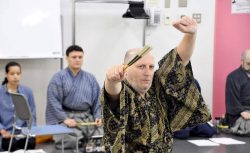Kabuki Star Plays Exiled Priest on Remote Island; Real-Life Setting Highlights His Lonely Despair
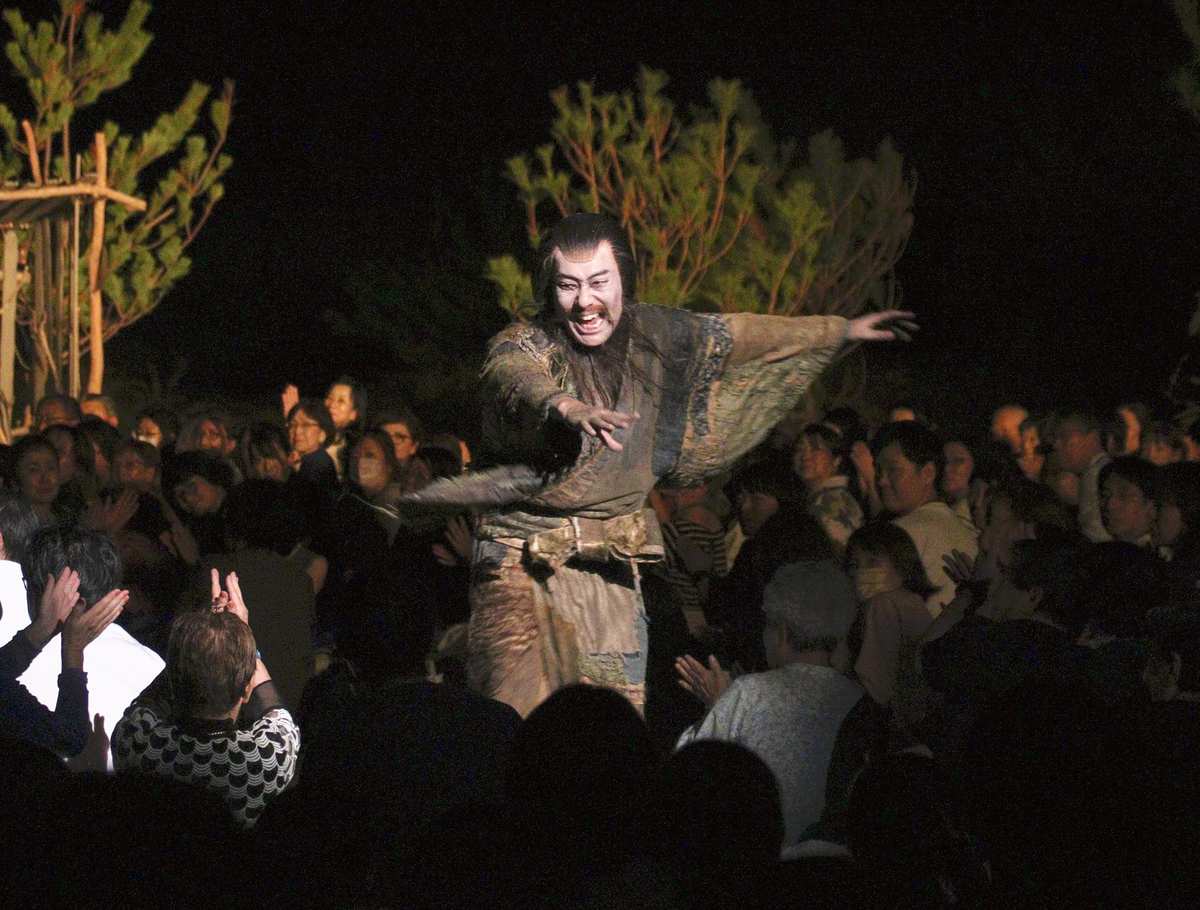
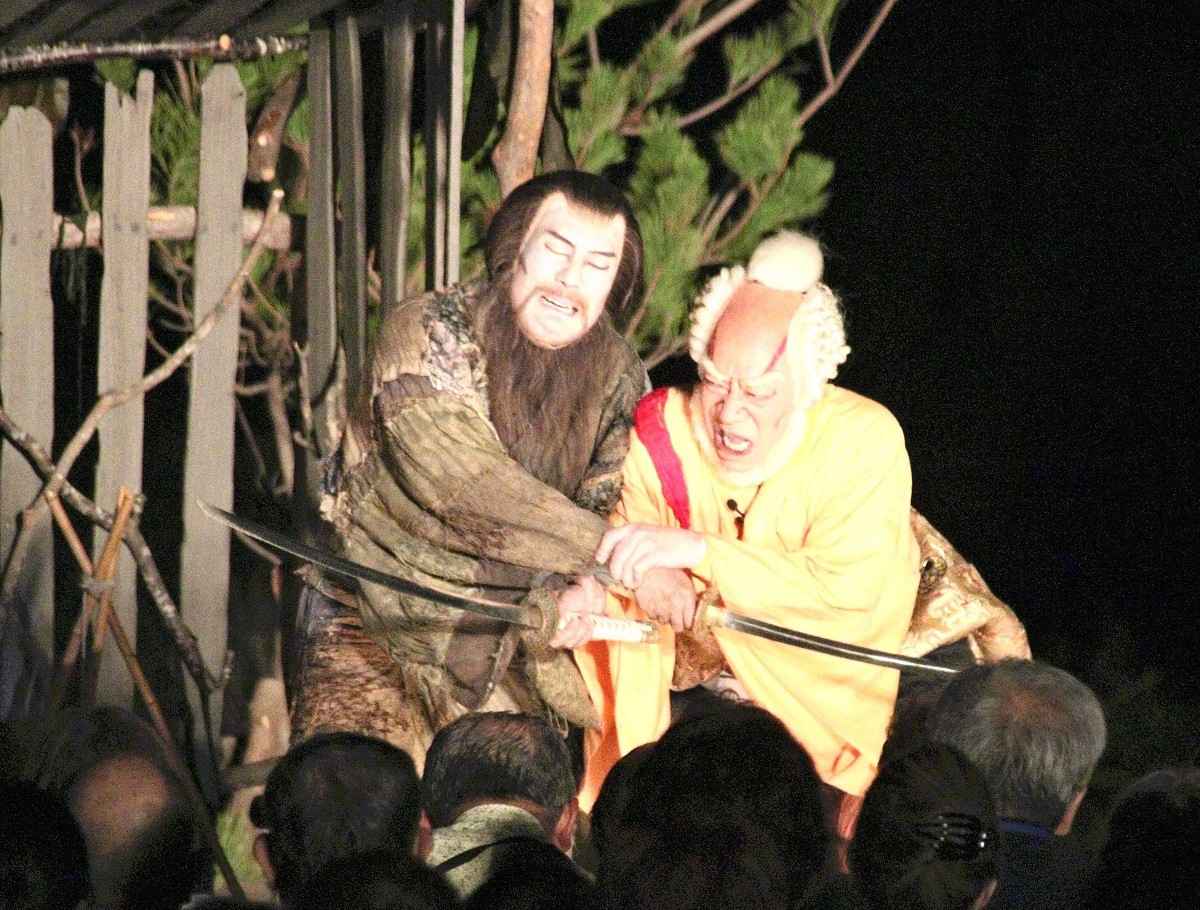
Left: Shunkan (played by Nakamura Kankuro VI) runs through the audience after being left all alone. Right: Shunkan, left, and Seno cross swords with each other.
17:30 JST, December 29, 2024
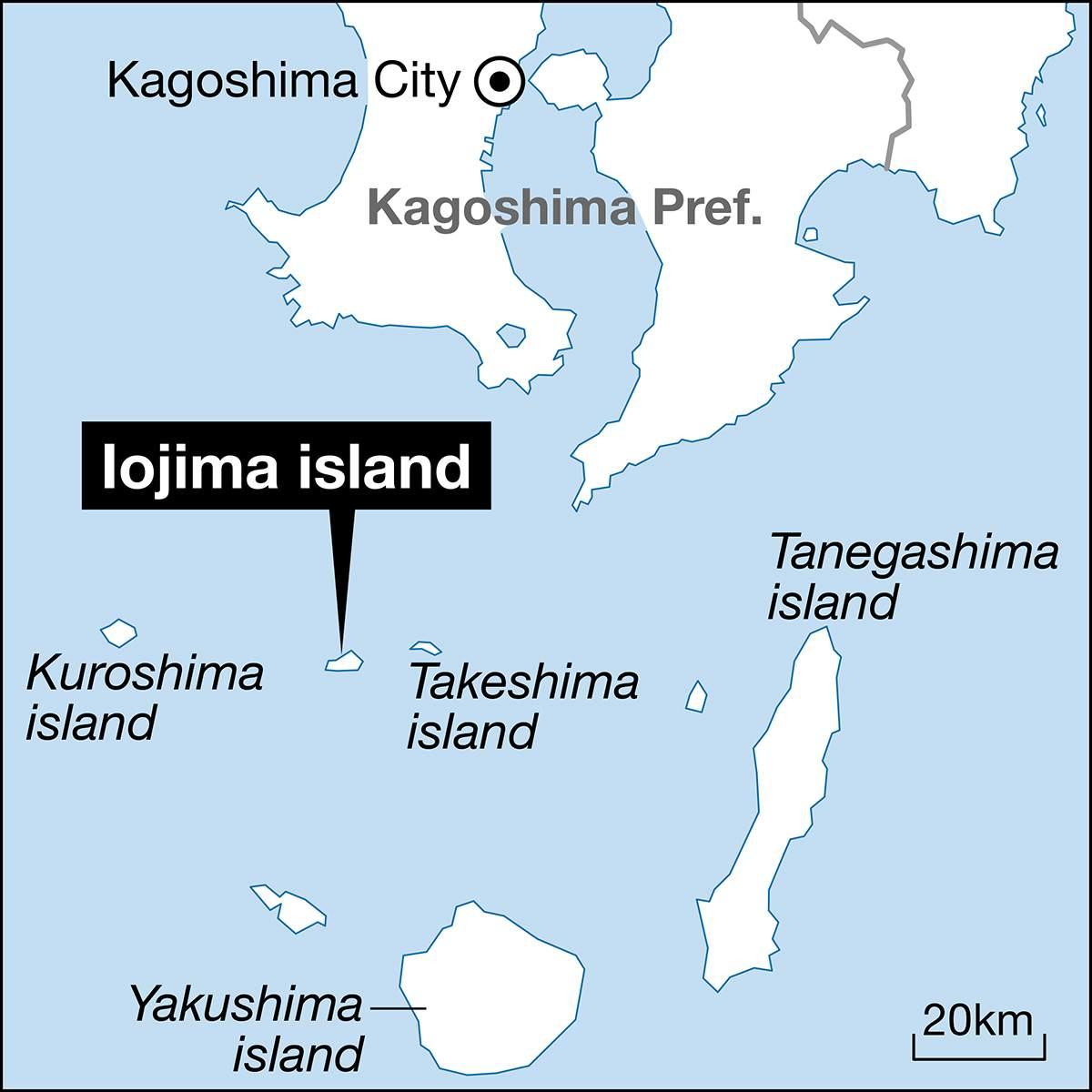
MISHIMA, Kagoshima — In the latter years of the Heian period, which stretched from 794 to the late 12th century, a Buddhist priest named Shunkan was banished for conspiring to topple the Heike regime. He was sent to Kikaigashima, a small, solitary island far off in the sea.
A kabuki play about Shunkan was performed on Oct. 22 under the title “Mishimamura Kabuki: Shunkan,” on Iojima island in Kagoshima Prefecture, where Shunkan’s story has been passed on and which is believed to be the same island once called Kikaigashima. Kabuki star Nakamura Kankuro VI played the role of Shunkan on the final day of a memorial tour commemorating the 12th anniversary of the death of his father, Nakamura Kanzaburo XVIII, who also performed as Shunkan on the same island.
This marked the first time that Kankuro VI had played the part.
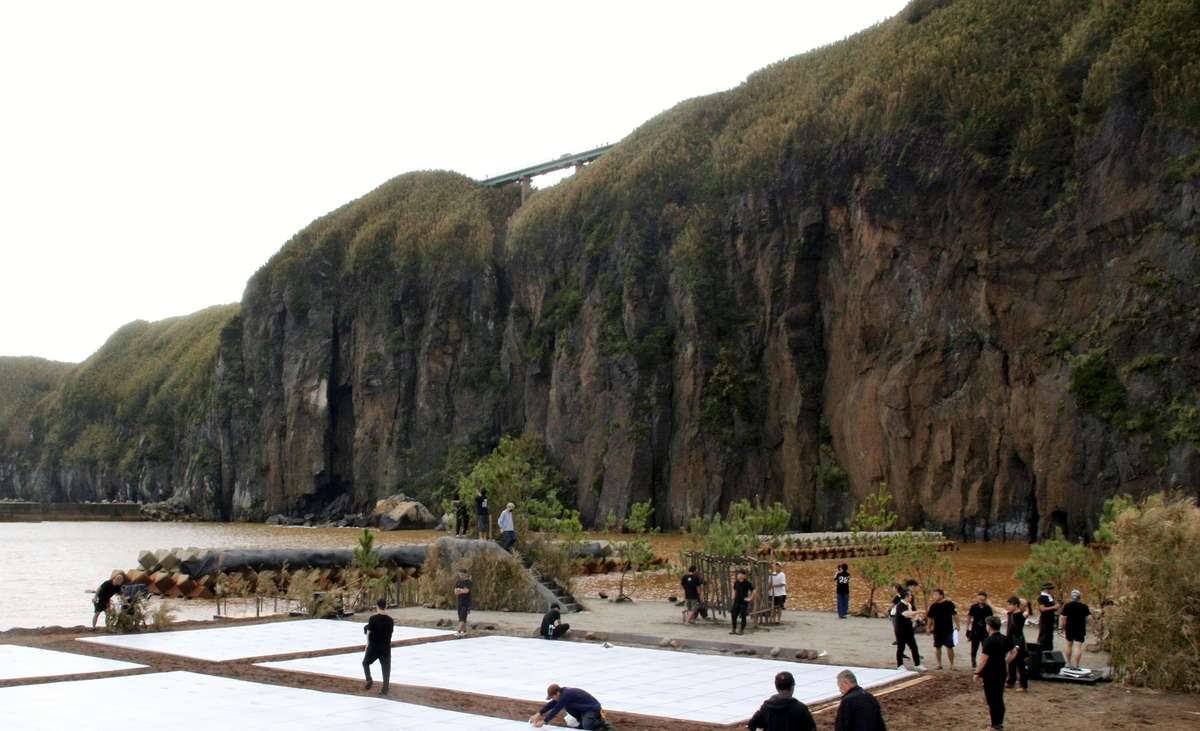
The makeshift stage for “Mishimamura kabuki: Shunkan” is prepared on Iojima island. The seating area for the audience is seen in white. The sea near the cliff looks brown, the result of a chemical reaction between iron from a hot spring and sea water.
Brown rocks were illuminated by the play’s lighting, and it was very quiet — the only sound was the ocean waves. Looking up, I could see the star-filled sky. The makeshift outdoor stage, on a beach near the port, was built with pine trees grown on the island. The stage set included rocks and a hut.
When the play is performed in a theater, a pale blue curtain falls down to reveal the stage representing Kikaigashima island. Here on Iojima, the audience of about 500 people, including islanders and spectators from elsewhere, could envision the lonely place where Shunkan lived, even before the performance began.
Enter Shunkan. Kankuro appeared from between pine trees, wearing a kimono owned by his grandfather, Nakamura Kanzaburo XVII, and holding a stick used by his father. Kankuro’s haggard appearance illustrated Shunkan’s three years of living a hard, uncertain life on a remote island.
Shunkan was exiled to the island together with Tanba no Shosho Naritsune (played by Nakamura Kantaro III) and Heihangan Yasuyori (Nakamura Icho III). He rejoiced at Naritsune’s wedding to Chidori (Nakamura Tsurumatsu II), a local female diver.
Shunkan and Yasuyori congratulated the bride and the groom. Shunkan also poured out his feelings for his wife, whom he had left behind in Kyoto.
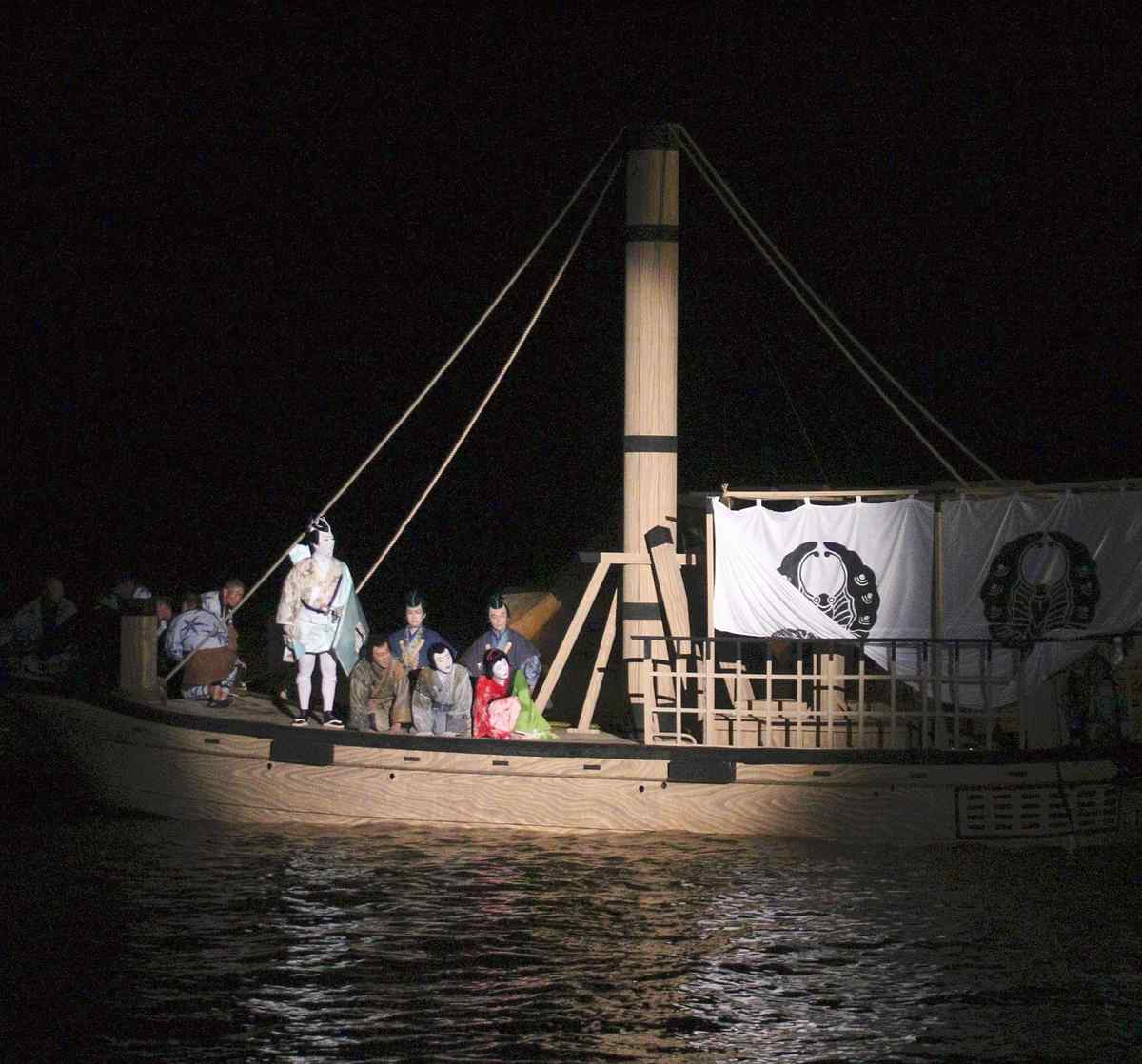
Tanzaemon (Nakamura Shichinosuke II, standing) and others say farewell to Shunkan from a real boat.
Then came bureaucrat Seno Taro (Kataoka Kamezo IV) from the sea, arriving on a real boat operated by residents of Iojima island. Seno brought a letter of pardon from Kyoto, but Shunkan’s name was nowhere to be seen, no matter many times he read the letter. His wailing reverberated throughout almost the entire island.
Then another bureaucrat, Tansaemon (Nakamura Shichinosuke II), came to tell Shunkan that he was also pardoned and could return to Kyoto. But Shunkan asked him to take Chidori instead, making up his mind to remain on the island all alone. He stretched his arms toward the boat and said farewell to Naritsune, Yasuyori and Chidori on board.
Later, however, he hurried barefoot on the beach sand amid the audience and ran into the sea, his face filled with the fear of being deserted. The way he crouched on the rock was a picture of despair from really becoming alone.
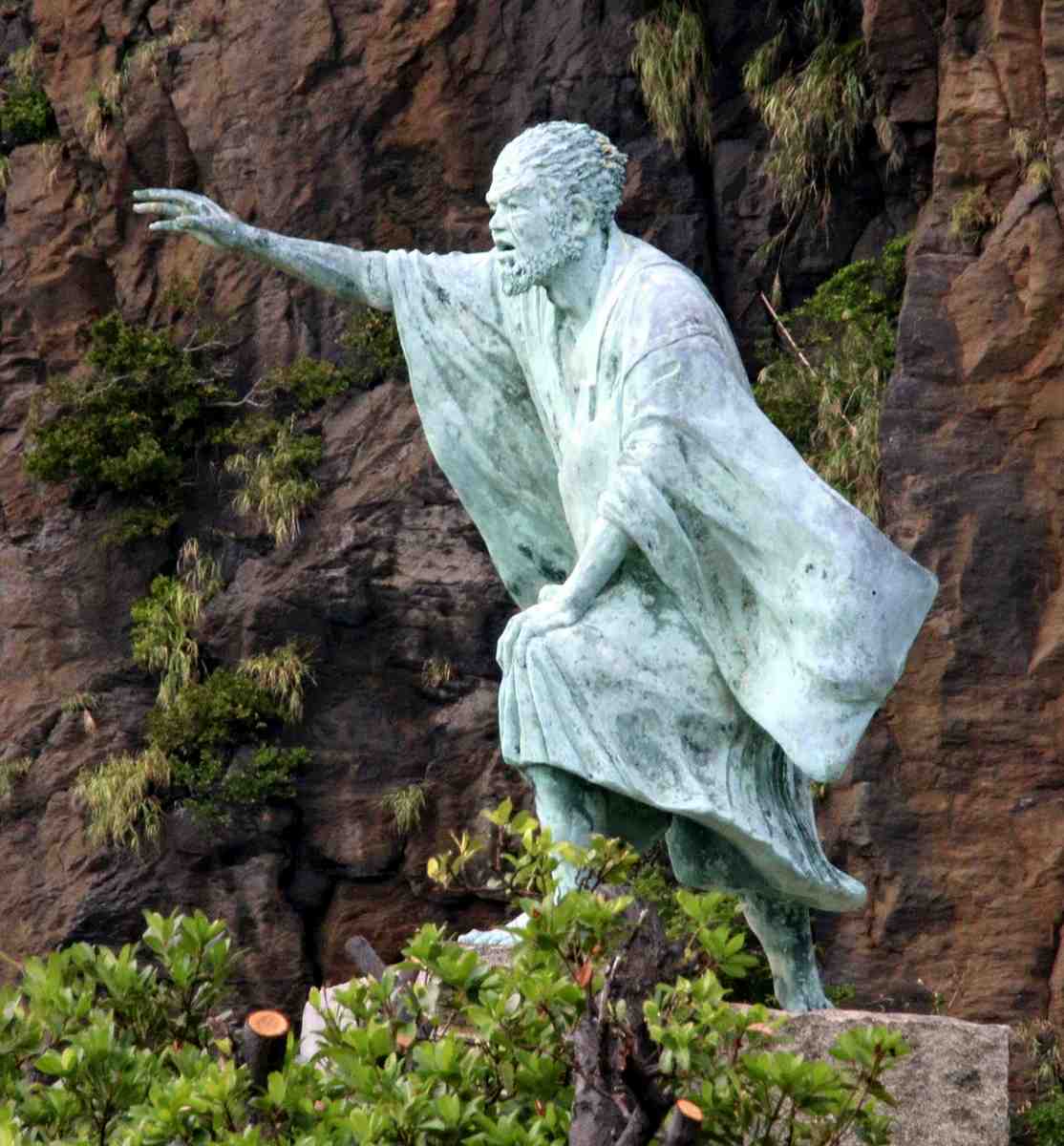
A statue of Shunkan on the seaside
In 1995, Kanzaburo XVIII was invited to the unveiling ceremony for a statue of Shunkan near the port. He then suggested a performance of the kabuki play, which was performed on the island for the first time in 1996. Kanzaburo revived the outdoor production in 2011, saying, “I feel privileged as an actor to be able to stage this play in the place where Shunkan died.”
This year, bad weather caused ferry cancellations on the day before the performance, and the actors arrived at the island just 5½ hours before showtime. But the clouds that covered the sky in the late afternoon magically cleared, and stars were twinkling in the sky during the performance.
“It was a miracle that we could do it today. I think my father was watching over us,” said Kankuro after the show, pointing up at the sky. He then put his hands together in prayer.
Top Articles in Culture
-

BTS to Hold Comeback Concert in Seoul on March 21; Popular Boy Band Releases New Album to Signal Return
-

Director Naomi Kawase’s New Film Explores Heart Transplants in Japan, Production Involved Real Patients, Families
-
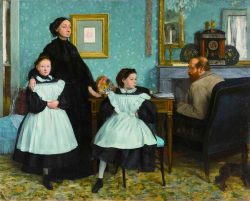
Tokyo Exhibition Offers Inside Look at Impressionism; 70 of 100 Works on ‘Interiors’ by Monet, Others on Loan from Paris
-
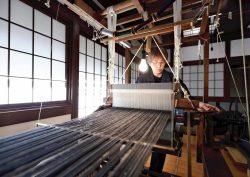
Traditional Japanese Silk Hakama Tradition Preserved by Sole Weaver in Sendai
-
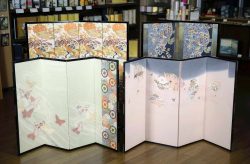
Japanese Byobu Folding Screens Tailored to Meet Modern Lifestyles; Foreign Orders Also Piling up
JN ACCESS RANKING
-

Producer Behind Pop Group XG Arrested for Cocaine Possession
-

Japan PM Takaichi’s Cabinet Resigns en Masse
-

Man Infected with Measles Reportedly Dined at Restaurant in Tokyo Station
-

Israeli Ambassador to Japan Speaks about Japan’s Role in the Reconstruction of Gaza
-

Videos Plagiarized, Reposted with False Subtitles Claiming ‘Ryukyu Belongs to China’; Anti-China False Information Also Posted in Japan




